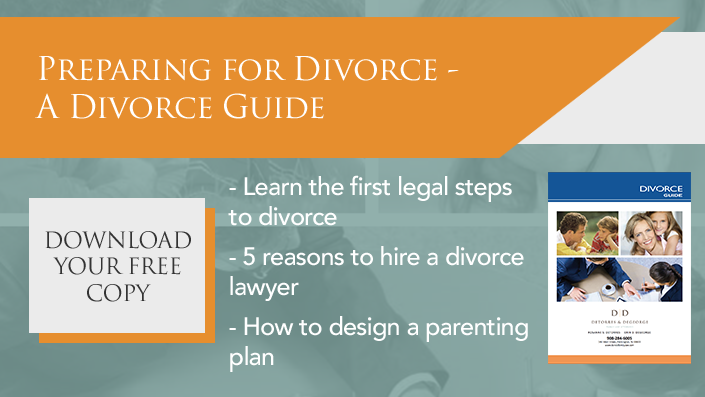
A marital settlement agreement (MSA) is a comprehensive written document that outlines the entire agreement between yourself and your spouse with regard to the issues in your divorce in New Jersey. It is vital that this divorce settlement agreement is detailed and includes everything that it should. The document is submitted to the court, and the terms in it directly become the terms of your divorce judgment.
A separation agreement is a similar document that includes the same types of agreements, however, it is not filed with the court and is meant to decide the issues at play while the couple is separated before the divorce. A separation agreement can become the basis for a marital settlement agreement once the couple is ready to move forward with a divorce.
An MSA can be entered into at any point during your divorce. Some couples negotiate the terms of their divorce settlement agreement before they even file and are able to proceed through the divorce on an uncontested basis, submitting the settlement agreement to the court. If your divorce is contested, your attorneys will work to negotiate a divorce settlement agreement throughout the process, with the goal of avoiding a trial.
It is essential that you work with an experienced attorney who can help you create a divorce settlement agreement that is complete and covers all of the issues and agreements involved in your divorce. If you or your spouse do not abide by the MSA following your divorce, you will file a motion with the court to enforce the agreement. If you have a detailed MSA, it helps the court to grant you the relief you are entitled to.
Here are five things you should be sure are included in your MSA—and how to get the most out of a divorce settlement when negotiating with your spouse:
1. A detailed parenting-time schedule—including holidays!
Many times when negotiating a divorce settlement agreement, a client will tell me that they don’t want a detailed parenting-time plan because they “are sure they can be reasonable and work together.” I always caution clients against this. Simply because it is an amicable divorce or you are getting along currently does not mean that this will always be the case. Parenting-time disputes are extremely common, even in matters that incorporate a detailed schedule. It’s in your best interest, and more importantly in the best interest of the children, that you have a detailed schedule in an attempt to avoid issues down the road. This parenting-time schedule is an extremely important thing to ask for in a divorce settlement. You should also include a detailed holiday schedule so there’s never a question of fairness or who has the children on a particular holiday.
2. Specifics about support
In many cases, there will be both alimony and child support exchanged by the parties. It is important to have details in your divorce settlement agreement that specifically outline these provisions so everyone is aware of what their obligations are. You should include information about what your current incomes are and what incomes were used to calculate support. In terms of alimony, you should be sure to include the amount of alimony being paid each month, the date it is being paid, and how long it is going to be paid if it is a limited-term obligation. You should also outline the reasons why alimony would terminate, such as the death of either party or the remarriage of the spouse receiving support.
3. Life insurance
If you or your spouse will be paying child support or alimony, be sure to include a provision in your divorce settlement agreement that requires the spouse paying support to maintain life insurance in an amount sufficient to secure his or her obligation. The policy should name the other spouse as the beneficiary to secure your alimony and/or child support. This will protect you and ensure that you will continue to receive money to help support the children and/or yourself in the event that your spouse passes after your divorce.
4. Retirement accounts and how they will be divided
Be sure that you list all of the retirement assets owned by the parties. Detail how the assets will be divided or who will keep a particular asset. Many retirement accounts, such as a 401k and pension, will require a qualified domestic relations order (QDRO) to authorize the division of the account. Include a provision about who will be completing the QDRO and who is responsible for the cost of the preparation. If you are dividing an IRA, it is possible to do so by way of rollover. You should specify a timeframe for this to occur.
5. A plan for the sale of the house
In some cases, the marital home may be sold after the divorce is final. It may be that one party has since moved out. In order to ensure that the process moves smoothly, including details about the sale of the home is another important thing to ask for in a divorce settlement. For example, you might say that it is to be listed within 30 days of the divorce and remain on the market until it sells. Some people get even more detailed and specify what offers must be accepted. If your spouse is retaining the marital residence in a buyout, they most likely will need to refinance the home. Include a timeframe for this to occur, and specify what type of deed will be exchanged.
The attorneys at DeTorres & DeGeorge can show you how to get the most out of a divorce settlement and know how to prepare a divorce settlement agreement. They offer representation in divorce, child custody, and family law. Make an appointment by calling 908-304-9683 now.


 START LIVE CHAT
START LIVE CHAT










